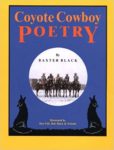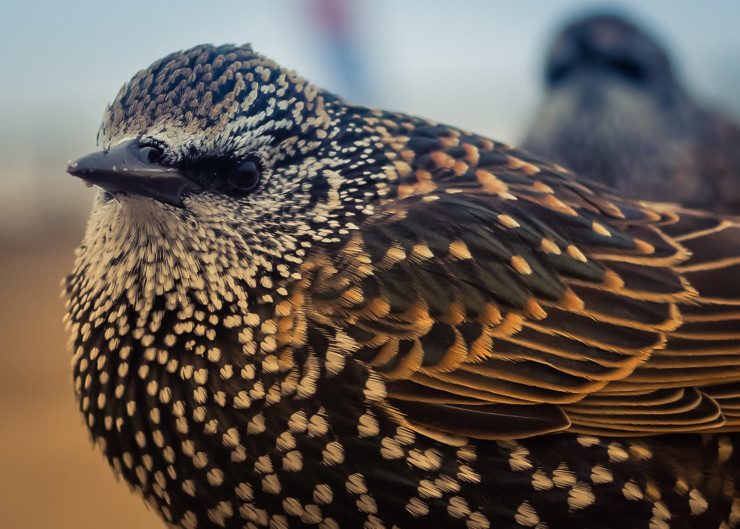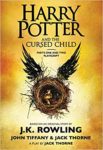There are two kinds of people (aren’t there always?): Those who dig into a series and those who don’t. When faced with a new series, I often think, Do I want to take the time? But some months I can’t help myself. This is the month I welcomed the direwolves and dragons. I also continued a series I started last month, finished a reread of book 4 in another series, and read a book about a beloved series that has come under renewed criticism.
At Tweetspeak, books matter, whether they are series or stand-alones. We host book clubs, we review books, and we publish them at T.S. Poetry Press. Do you want to be a wild reader? Are you reading wildly already? We’re using Donalyn Miller’s Reading in the Wild: The Book Whisperer’s Keys to Cultivating Lifelong Reading Habits to explore what it means to be a wild reader — someone who embraces literacy for life. Read through these five characteristics and see which ones fit your reading style and which you might incorporate this month. Or add your own.
5 Main Characteristics of Wild Readers
1. They dedicate time to read.
My 
2. They self-select reading material.
Last month I self-selected Louise Erdrich’s middle-grade Birchbark House series, and this month I read book 2, The Game of Silence. (Yes, it was a month with two titles containing the words “game of.”) In 2006, this book won the Scott O’Dell Award for historical fiction for young people. This book shows what happens when Omakayas and her family learn the U.S. government is removing them from the place they’ve always called home. Early in the book the children are playing the game of silence so the grownups can discuss what to do in changing times. At the end of the book they are playing the game in an entirely different way:
“Nokomis sang, in a very low voice, the song that introduced the game of silence. But this time there were no prizes. This time there would be no laughter if some child mistakenly spoke. The game was very different now and everyone knew it … for they all understood, even Pinch, that the game of silence was now a game of life and death.”
I’ll talk more about this series next month, when I discuss the name change of what was formerly known as the Laura Ingalls Wilder Award.
3. They share books and reading with other readers.

4. They have reading plans.
I have mentioned that my best friend and I are jointly following a reading plan. We are rereading J.K. Rowling’s Harry Potter books one chapter at a time as we listen to the podcast Harry Potter and the Sacred Text. Discussing a chapter a week has brought our 29-year friendship to a new level. Much of our discussion since October 5, 2017, when the podcast began covering Harry Potter and the Goblet of Fire, has been about an unjust death in the story. That death is a significant motivator for the plot of Harry Potter and the Cursed Child, which I also read this month after it won the Tony Award for Best Play. If you’d like to read Harry Potter and the Order of the Phoenix along with the podcast, season 5 starts August 23.
5. They show preferences.

I abandoned Shel Silverstein’s Falling Up. I remembered not liking it nearly as much as Where the Sidewalk Ends, which I basically memorized as a child, so I thought I would give it another try. Alas, my opinion did not change. But Shel Silverstein, you are one of our poets for Take Your Poet to Work Day, and I still think you’re pretty great as “a dreamer, / A wisher, a liar, / A hope-er, a pray-er, / A magic bean buyer.”
July’s Pages
Finished
Adult
No god But God, Reza Aslan (finished from last month)
Prairie Fires: The American Dreams of Laura Ingalls Wilder, Caroline Fraser
A Song of Ice and Fire: A Game of Thrones, George R.R. Martin
Early Readers and Picture Books
Radio Rescue, Lynne Barasch
Wave, Suzy Lee
I Know an Old Lady, illus. G. Brian Karas
Two Friends: Susan B. Anthony and Frederick Douglass, Dean Robbins, illus. Sean Qualls & Selina Alko (Children’s Book Club selection, Friday, August 10)
Middle Grade and YA
The Game of Silence, Louise Erdrich Erdrich
Harry Potter and the Goblet of Fire, J.K. Rowling
Harry Potter and the Cursed Child, J.K. Rowling
Sliced (Got what I needed and moved on or plan to finish someday)
Coyote Cowboy Poetry, Baxter Black, illus. Don Gill, Bob Black & Friends
Abandoned (Not my cup of tea, it bogged down quickly, or others beckoned.)
Falling Up, Shel Silverstein
Started (Will I finish? Of course!)
A Song of Ice and Fire: A Clash of Kings, George R.R. Martin
In the Company of Crows and Ravens, John M. Marzluff
Photo by Beverley Goodwin, Creative Commons, via Flickr. Post by Megan Willome, author of The Joy of Poetry.
Browse more Reading in the Wild
“Megan Willome’s The Joy of Poetry is not a long book, but it took me longer to read than I expected, because I kept stopping to savor poems and passages, to make note of books mentioned, and to compare Willome’s journey into poetry to my own. The book is many things. An unpretentious, funny, and poignant memoir. A defense of poetry, a response to literature that has touched her life, and a manual on how to write poetry. It’s also the story of a daughter who loses her mother to cancer. The author links these things into a narrative much like that of a novel. I loved this book. As soon as I finished, I began reading it again.”
—David Lee Garrison, author of Playing Bach in the D. C. Metro
- Perspective: The Two, The Only: Calvin and Hobbes - December 16, 2022
- Children’s Book Club: A Very Haunted Christmas - December 9, 2022
- By Heart: ‘The night is darkening round me’ by Emily Brontë - December 2, 2022




Glynn says
Speaking of series, Louise Penny will publish a new Inspector Gamache mystery novel in November. She can’t write fast enough, if you ask me.
July reading:
Poetry
A Child’s Year: Poems by Chris Yokel
Love Songs by Sara Teasdale
Fiction
The Edge of Other There by Shawn Smucker
A Monster Calls by Patrick Ness (a YA novel that qualifies for adult fiction, too)
Snowed Inn by Kate Palmer
Love’s Return by T.K. Chapin
Winter’s Secret by Lyn Cote
Tales from My Welsh Village by Ken Smith
Mystery
A Whispered Name by William Brodrick
The Case of the Dead Shepherd by Christopher Bush
Murder at the Mansion, Death at the Cafe, and The Case of the Screaming Beauty by Alison Golden
Non-Fiction / Memoir
River Road by Charles Martin
Tolkien: Maker of Middle Earth, ed. by Catherine McIlwaine
Tolkien at Exeter College by John Garth
Dragon Lords: The History and Legends of Viking England by Eleanor Parker
Except for the non-fiction and one of the mysteries (A Whispered Name), I stuck to fairly light, “beach reading even if I’m not at the beach” books for July. I was devoting considerable time to finishing and editing novel #4, which I read at least seven times during the month. Tentative title is Dancing Prophet, and it’s now in the publisher’s editorial / cover design process.
Megan Willome says
How exciting! And “prophet” seems a logical choice, since you’ve already covered priest and king.
That’s great news about Louise Penny!
L.L. Barkat says
I love that you’re doing a partner-read-n-listen. More people might consider such a thing. (Sounds like a great way to bond and enjoy the lit, both.)
I read more in French (a few kids’ books), am still reading The Golem and Jinni, and got substantial starts in..
• The One Thing (which I don’t mostly agree with, but I’m reading anyway)
• Essentialism
• Tom’s Midnight Garden
• Feynman’s Rainbow: Finding Beauty in Physics & Life
I also reread portions of Several Short Sentences About Writing to Sara, and we had some fascinating conversations about what it is that invites a reader to give themselves over to a story (or not).
Megan Willome says
Sounds like an interesting discussion. Any takeaways to share?
The other thing I like about discussing HP with my friend is that the discussion is slow and steady–one chapter a week. Both of us are fast readers, so we normally plow through books. This approach forces us to notice things we didn’t initially. Also, we feel like we’re in discussion with the hosts of the podcast, even though we aren’t. There’s something intimate about audio.
L.L. Barkat says
One takeaway: it’s a disservice to readers when a writer denigrates his/her writing. The reader relies on the writer to “take them away,” and it breaks the dream when the writer goes on about their ineptitude. It ruins the reader-writer pact.
Another takeaway: nothing salvages bad writing, but good writing can make anything fascinating. So the writer can’t rely on “an interesting topic,” but rather must work very hard to be interesting via excellent craft.
Audio is voice, up close, whereas otherwise the reader must imagine the voice. I like the idea of how listening to audio together might create a certain kind of unexpected intimacy. 🙂 (And I love the idea of taking it slow, with a well-loved text.)
Megan Willome says
Thanks for those!
One of the things I love about a book that I’ll profile in next month’s Reading in the Wild, “In the Company of Crows and Ravens,” is that it’s basically a scientific text but it’s so well-written that if you didn’t like corvids already, you’d fall for them. I read this sentence last night: “Whenever we walk across the University of Washington’s campus, crows take our names in vain, warning all who know the language that the crow trappers are afoot.”